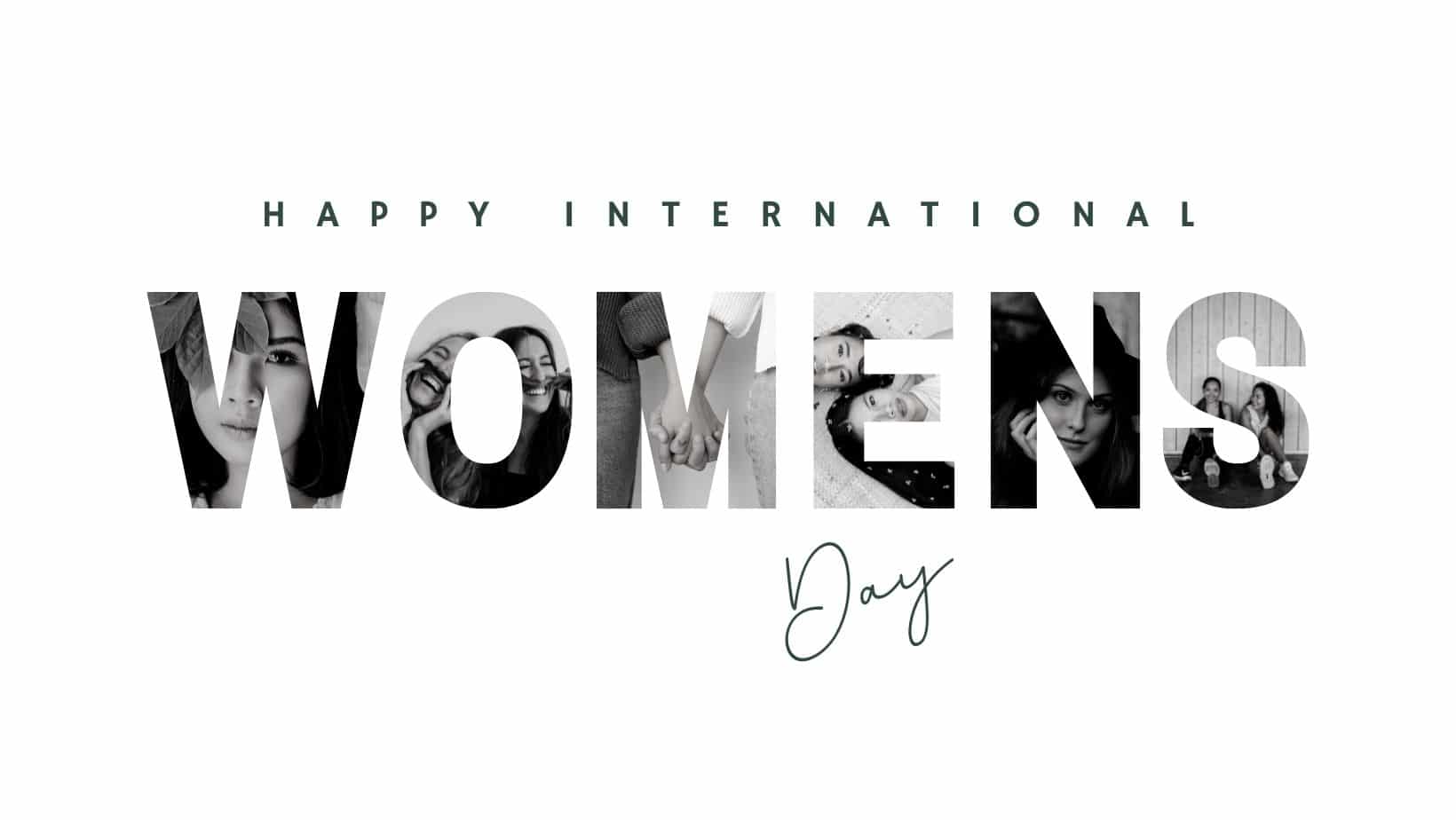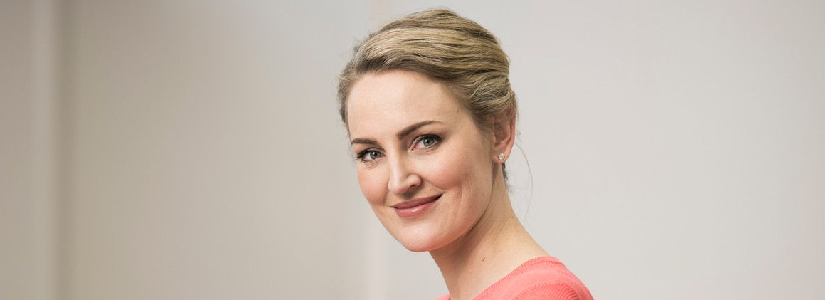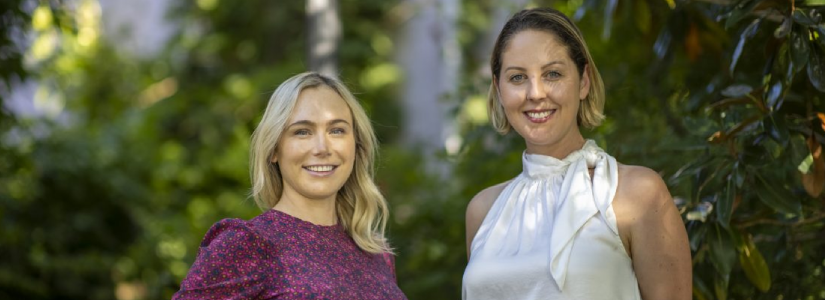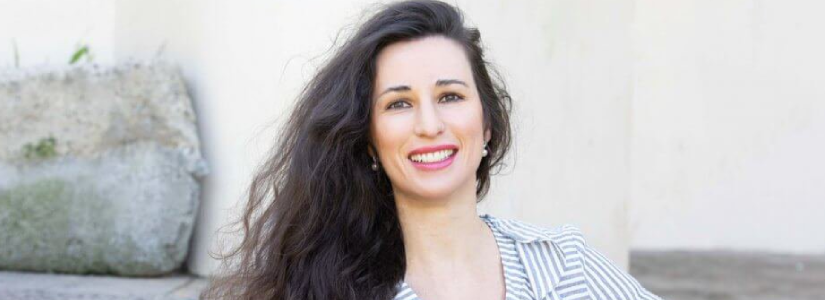8 March, 2022

To celebrate the theme of this year’s International Women’s Day, #BreakTheBias, we asked five prominent women in the Aesthetic industry about the empowering work they do for women, and how they ‘break the bias’ every day.

Specialising in full-face rejuvenation utilising injectable dermal fillers and muscle relaxants, combined with skincare and laser treatments, Dr McDonald works to ensure her patients receive the finest care possible.
Dr McDonald is also a cosmetic injectables educator and trainer who travels the world to speak at prestigious industry conferences such as the Allergan Medical Institute Masters Education Program and Aesthetics 2019. She is passionate about the patient care aspects of cosmetic medicine to ensure patients receive a service, experience, and outcome that is tailored to their individual needs.
How do you feel the aesthetic industry has positively impacted women today?
The aesthetic industry has shown women that it is within their rights and power to choose how they present themselves to the world. In the same way that makeup and fashion have, aesthetic treatments have allowed women to express themselves in a way that aligns with their personal preferences and has opened up many new avenues to control our narrative and take it into our own hands with regards to confidence and self-esteem.
Although aesthetic concerns and treatments may only be accessible to a privileged set of the population, I feel like the self-empowerment they bring extends beyond those having treatments. We are seeing an increase in the confidence to be an individual rather than always conform.
There is, of course, a flip side to this industry, and there is a fine line between empowering women and increasing insecurity, which can be exaggerated by the feeling that we will never be able to keep up with others.
The theme of the International Women’s Day campaign 2022 is #breakthebias. What does #breakthebias mean to you?
Bias is a preference or an inclination towards or away from a certain preference. The problem with breaking biases is that they are often subconscious or hidden from those that exhibit them. The first step in breaking the bias is to examine our own innate or subconscious biases, particularly towards other people, as well as ourselves, and acknowledge we have them. Most people exhibit a strong negative bias where the impact of their negative thoughts or emotions, for example, around appearance, far outweighs the positive ones. This leads to excessive self-criticism, low confidence, and self-esteem. Sadly, women are often highly critical of themselves but also critical and judgemental of others. Often, I believe that this is due to the fact that women are more insecure in themselves and project that onto those around them.
I feel we all need to be more inward focused and understand that happiness, confidence, and self-esteem starts with accepting yourself and being true to yourself. Only then will we start to fully appreciate the beauty of diversity and the uniqueness and beauty that exists in every human being. Pure acceptance of human individuality and equality is the first step to breaking the bias.
Do you think gender diversity in the workplace is important and why?
Only by embracing diversity will our subconscious biases be broken down. Diversity is essential in not only the workplace but in life, love, and friendship. Diversity takes many different forms, including race, gender, behaviour, and personality. Humans are all unique but have a desperate desire to be accepted and to belong. In many cases, this leads us to feel that diversity is unwelcome and that we should do our best to “fit in”. We then project that into our environment. I believe that the key to embracing diversity is first self-acceptance and honest examination of our personal intolerances and biases.
In your opinion, how important is it for women to support each other in life and work?
Women as a group are so much stronger when we work together and fight for each other, as well as ourselves. When women waste their energy, power and influence on bringing others down, we all end up losing out. In most cases, it is insecurity and self-criticism that causes us to judge or criticise others, and this ultimately prevents us all from making progress.
In the aesthetic industry, most of both providers, such as injectors and therapists, and also users (patients and clients), are women. Despite this, at the highest levels of influence in our industry, such as key opinion leaders, educators, and published authors, we see an overrepresentation and dominance of men.
Why do we still look to men to tell us how we should feel and look? I fully appreciate that many men have an exquisite eye for beauty, but if women truly supported and trusted other women, we would look up to them primarily for that true understanding of what it means to look and feel your best whilst maintaining our unique features and diversity.
What is the most important message you want to send out to young women thinking about their careers?
Your career should be long, satisfying and fulfilling. When we are young and insecure, thinking about our career, we often make choices that we feel will get us ahead in some way. I see many women who want a career in the aesthetic industry because they feel it will open up all the secrets and options for them or catapult them into the glamorous lifestyle that they crave.
A career in aesthetics should be first and foremost about helping others gain confidence and reach self-acceptance and self-love, whilst also ensuring that women do not feel that aesthetic treatments are the answer to their problems. Being an aesthetic practitioner is extremely rewarding but requires a conscious and careful practice to empower women yet never take advantage of their insecurities or negative mindset.
Aesthetic practitioners need to be empathic communicators with a passion for people, connection and lifting others up. We spend all day listening and helping people become the best version of themselves. So, if you love helping people and building people up, then a career in aesthetics could be the right one for you.
Dr Amanda Ong (also known as the “Queen of Collagen”) is a Melbourne based Cosmetic Physician with over 18 years’ experience in facial aesthetics, and a Fellow of both the Cosmetic Physicians College of Australasia (CPCA) and the Australasian College of Cosmetic Surgery (ACCS).
Her main interest is a global approach to facial aesthetics with the use of collagen bio-stimulating injectables and thread lifts.
Renowned for her artistic eye and attention to detail, Dr Amanda is a well-recognised international and national key opinion leader (KOL), speaker, and trainer for four leading collagen bio-stimulating injectables and thread lifting brands.
Dr Amanda has presented at international and national aesthetic conferences and enjoys sharing her experiences in the field, as she believes it is beneficial for her ongoing development in this ever-advancing industry.
How do you feel the aesthetic industry has had a positive impact on women today?
With Covid and rolling lockdowns, we have seen significant growth and requests for cosmetic treatments. So many women are looking at themselves on zoom – that’s been a big thing. By offering a treatment that can subtly address their concerns in a natural way, many people end up feeling a lot better about themselves. Helping build women’s confidence is a key part of the industry. How women look and more importantly, feel, can have a big impact on their lives.
My speciality is offering collagen-stimulating injectables, as opposed to traditional hyaluronic acid fillers. The reason for this is that a natural look is always achieved, so patients have the option of not looking like they have had work done. Unfortunately, there is a stigma of people undergoing cosmetic treatments, and many are afraid that others will notice that they have had work done. The treatments I specialise in stimulating one’s own collagen to grow, so it’s a natural way of approaching the aging process. I see my patients feel more confident in themselves and do not feel ashamed for investing in themselves because of treatments like these.
The theme of the International Women’s Day campaign 2022 is #breakthebias. What does #breakthebias mean to you?
When I started out 18 years ago, it was a far more male-dominated industry. My father was one of the first doctors in Australia to inject botulinum toxin in his time. Now, the injectable industry is becoming more female-dominated, with a lot more female doctors and nurse injectors offering Botox and fillers.
I conduct a lot of training and present at conferences and webinars for a number of leading products on the market, both locally and internationally. Previously, there were more male key opinion leaders (KOLs), so it’s nice to be representing female KOLs in the field and having that sort of acknowledgment. It’s important that we have the space and opportunity to share our expertise and knowledge with others. To me, breaking the bias means pushing the boundaries of gender stereotypes and standing strong in our abilities.
Do you think gender diversity in the workplace is important and why?
I do. In terms of the diversity of my clients, it’s interesting to see that nowadays, male aesthetic treatments are becoming more popular. My business specialises in hair loss as well, which is mostly male patients who sometimes will spill over to the cosmetic treatments as well. And because I offer collagen-stimulating injectables, it is a very suitable treatment for men due to its natural results. The emphasis is usually placed on women being the ones seeking cosmetic treatments, and that emphasis is sometimes quite negative. So, I think it’s important to acknowledge that men and women both share in the desire to look and feel good and improve their self-esteem through cosmetic treatments, as we can see with the increasing demand from male clientele.
In your opinion, how important is it for women to support each other in life and work?
I think it is very important for women to support each other – especially within my own clinic and also with people I know within the industry, like my fellow peers. We are constantly reaching out to each other on social media and behind the scenes. Even just simple things like liking each other’s posts and commenting positively on what we are doing in the industry is a really lovely thing to have. I receive many private texts asking for my opinion or advice, and I even see as fair number of practitioners as patients as well. It’s nice to have respect for each other’s strengths and be in a supportive environment where your colleagues are friends. It’s a forever changing field to be in, so it’s important that we help each other along the way to build on our shared knowledge.
What is the most important message you want to send out to young women thinking about their careers?
The message I wish to send out to women thinking about their careers is to follow your passion and be proactive and inquisitive to further your skills and knowledge. Make the most of any learning opportunity and never be afraid or too proud to reach out, ask questions or ask for advice.
On the flip side, as a KOL, trainer and mentor, always be generous with your knowledge, your experience and your time. Over the years, the gratitude that I have received from my fellow peers is what I have found to be most rewarding throughout my career. Respect can only be earned and not asked for.

Many treatment complications are avoidable, but even the most experienced aesthetic health care practitioners will encounter adverse events. AMET has formed an unbiased Aesthetic Complication Advisory Panel to ensure that a more structured framework for complication management is in place, based on current and emerging evidence.
AMET has also established Australia and New Zealand’s first Ocular Complication Support team, as well as a vast nationwide network of highly experienced industry experts, including plastic surgeons, dermatologists, ophthalmologists, radiologists, cosmetic physicians, and nurse practitioners. AMET’s vision is to improve patient outcomes and raise aesthetic medicine safety standards by providing all aesthetic practitioners with 24/7 access to unbiased, evidence-based aesthetic safety education and complication support.
How do you feel the aesthetic industry has positively impacted women today?
Contrary to surrounding stigma, medical aesthetic treatments are more than simply smoothing out wrinkles or filling lips. The vast majority of women seeking aesthetic treatments have noticed something about their appearance that they feel is distracting from their natural beauty. In addition, age-related changes in our faces can affect our emotional expression and interaction with others. This creates a natural disconnect whereby we no longer look how we feel. When performed well and by suitably experienced practitioners, aesthetic treatments now give women the ability to re-establish this connection whilst still maintaining a natural-looking result. This, in turn, creates a huge positive shift in their self-perception and overall level of self-confidence. Every woman deserves to look and feel their best, and they should be empowered and supported to do so.
The theme of the International Women’s Day campaign 2022 is #breakthebias. What does #breakthebias mean to you?
For us, it means women supporting women with no judgement! Telling a woman “you don’t need treatment” is not only inappropriate and irrelevant, but it is also dismissive of their emotional needs. Whether we like it or not, throughout history, women have always had increasing pressure to look or behave a certain way. Whilst we are headed in a more positive direction with equality, the rise of social media has added a new level of constant pressure for women to aim for an unrealistic “perfect” (or filtered) life.
Do you think diversity in the workplace is important and why?
Imagine going to a ball where everyone wore the same dress or colour. How boring would that be! Diversity is necessary for any industry and workspace to truly succeed. Diversity brings with it perspective, vision and innovation. Medical aesthetics is constantly changing, and our knowledge is growing faster than we can publish articles! This is why we (AMET) will always remain independent and inclusive of all health care practitioners. Each profession and practitioner has a different experience, which has the potential to add to or shape our industry with the united goal of improving patient safety.
In your opinion, how important is it for women to support each other in life and work?
This is so important. We need to also acknowledge other external life pressures and judgements placed on women. Are we single or married? Kids or no kids? Working or a stay-at-home mum? In all of these scenarios, there are judgments placed on us that inherently affect our life decisions and interactions. As women, we need to learn to care less about these negative perceptions and focus all of our energy on positive environments, people and ventures that enable us to reach our full potential.
What is the most important message you want to send out to young women thinking about their careers?Firstly, don’t be afraid to pursue your passion wholeheartedly; as you do so, your confidence will build in your skillset and business ideas. Stay firm in this confidence and do not let obstacles such as imposter syndrome stand in your way – if you are genuinely working hard and taking steps to continue learning and growing, you are on the right track for success. Challenge your mind and thinking by always being open to new ideas different perspectives.
Secondly, never underestimate the power of networking, even at the earliest stages of your career. Networking is pivotal in every facet of your career, and the relationships you build from early on may become integral to your future pursuits. So, treat all interactions you have with kindness, even if that is not shown to you!
As you work hard to develop your skill set, you will draw in like-minded supportive people. Build these connections just as Elena and I have with each other, and you never know in what capacity you may work together in the future.

After advanced plastic surgery training through the Royal Australasian College of Surgeons, Dr Matousek completed two further fellowships, one in breast surgery (Australasian Society of Aesthetic Plastic Surgeons/Allergan Breast Fellowship) and the other in facial aesthetic surgery (Mentor International Aesthetic Surgery Fellowship, London). She also spent time in the United States, learning the technique of large volume fat grafting to the breast, alongside some of the most experienced fat grafting surgeons in the world.
Dr Matousek received her PhD in surgical anatomy for her work on the fascia of the breast and gluteal region, where she discovered new ligamentous structures. Her work has since been published in the Plastic and Reconstructive Surgery journal, and the new anatomy she uncovered has been referenced in several articles and books.
In Australia, Dr Matousek was one of the first plastic surgeons to perform the technique of large volume fat grafting to the breast for reconstruction and cosmetic enhancement. She has developed her own method of three-dimensional fat micrografting and shaping of the breast, combined with precise liposuction with skin tightening to give the optimal results. This can be used to correct congenital breast abnormalities such as tuberous breast or breast asymmetry, as well as mastectomy reconstruction.
Dr Matousek also specialises in breast augmentation with implants, short scar breast reduction, abdominoplasty, surgical and non-surgical rejuvenation of the face and neck, and skin cancer management.
How do you feel the aesthetic industry has positively impacted women today?
Aesthetic procedures are still regarded by some as rather frivolous, however, time and time again, scientific studies show whether we like it or not, social and professional advantages are afforded to those that are considered younger and more attractive. Whilst “attractive” has subjective components, there are certain features scientific studies have proven that people find attractive that do not vary across cultures or races and are agreed upon by both men and women.
Unfortunately, women are judged on appearance much more than men, so there is greater pressure to look younger. A man looks “distinguished” or “rugged” as he ages, and a woman sadly get less complimentary terms. The technology now exists that people don’t have to look their age if they do not want to, or they can alter features or aspects of their bodies that are unbalanced or disproportional.
However, there is a disturbing trend of almost “supernormal” beauty where the combination of enhancements and filters is creating an unattainable aesthetic, especially for females. It’s amazing how many people come and show me pictures that are obviously filtered and think the look is somehow attainable.
Looking around, unfortunately, not all aesthetic procedures have made people more attractive. There is an alien race out there that seems to be fast multiplying. Overdone surgeries or non-surgical procedures can create irreversible damage to a person’s looks, so not all aesthetic enhancements have a positive impact.
The theme of the International Women’s Day campaign 2022 is #breakthebias. What does #breakthebias mean to you?
A lot of patients who meet me say, “I expected you to be an old guy in a white coat”. I try to be as far from this stereotype as possible.
People also assume as a plastic surgeon, you are out there making people look strange. My practice motto is “look refreshed, not ridiculous”.
Doctors classically have poor work-life balance. I remember in my training a senior surgeon saying to me, “how can you possibly have time to go to the gym?” and I responded, “how can I possibly not find the time?”. Whilst patients are always the priority, particularly in emergencies which occasionally arise, it is possible to set up work to not say yes to absolutely everything and find time to pursue outside interests. A well-balanced surgeon will perform better than an overworked, tired one.
Unfortunately, the consultant surgeon life-work model that is often witnessed as a training surgeon tends to send the message that you have to be constantly working in order to remain relevant and be a “good surgeon”. Whilst the training is gruelling, and there’s a period of a few years where you do have to make sacrifices to finish surgical training, once you are a consultant surgeon, setting up a better work-life balance is possible.
Do you think diversity in the workplace is important and why?
The prospect of undergoing plastic surgery is daunting for many, sometimes more so than other types of surgery. Therefore, patients need to feel comfortable with their doctor and be confident they understand their goals. Having a diverse workplace in surgery allows patients to be able to find a practitioner that suits their needs and aligns with their aesthetic.
In your opinion, how important is it for women to support each other in life and work?
During my plastic surgery training, I was one of only three female trainees in Sydney on the plastic surgery scheme. I had a friend that trained with me in the same year, and we are still in touch today. There were also very few female consultants around when I was training. Luckily, I was exposed to at least three senior female plastic surgeons that were inspiring and encouraging.
Whilst I met many uninspiring characters in my training that made it very unpleasant at times, I tried to provide an alternative experience to the one I had for training registrars going through when I was working with them at the public hospital.
What is the most important message you want to send out to young women thinking about their careers?
In many professions, as a female, you will need to prove yourself more than a man in the workplace and work harder. This is an unfortunate truth, but it is only by more women pushing through the more difficult aspects of navigating a male-dominated work environment that we will forge better gender equality. If a man is giving you a hard time in the workplace, don’t get emotional, get even.
As we reflect on International Women’s Day, we must recognise the great things that happen when we come together to celebrate the incredible achievements of the women around us.
A special thank you to Dr Cara McDonald, Dr Amanda Ong, Bronwyn Granata, Elena Currie, and Dr Simone Matousek, for allowing us to interview them for this article and for sharing their important messages with other women.
To learn more about International Women’s Day 2022 and the #breakthebias campaign, click here: https://www.internationalwomensday.com/
Leave a Reply